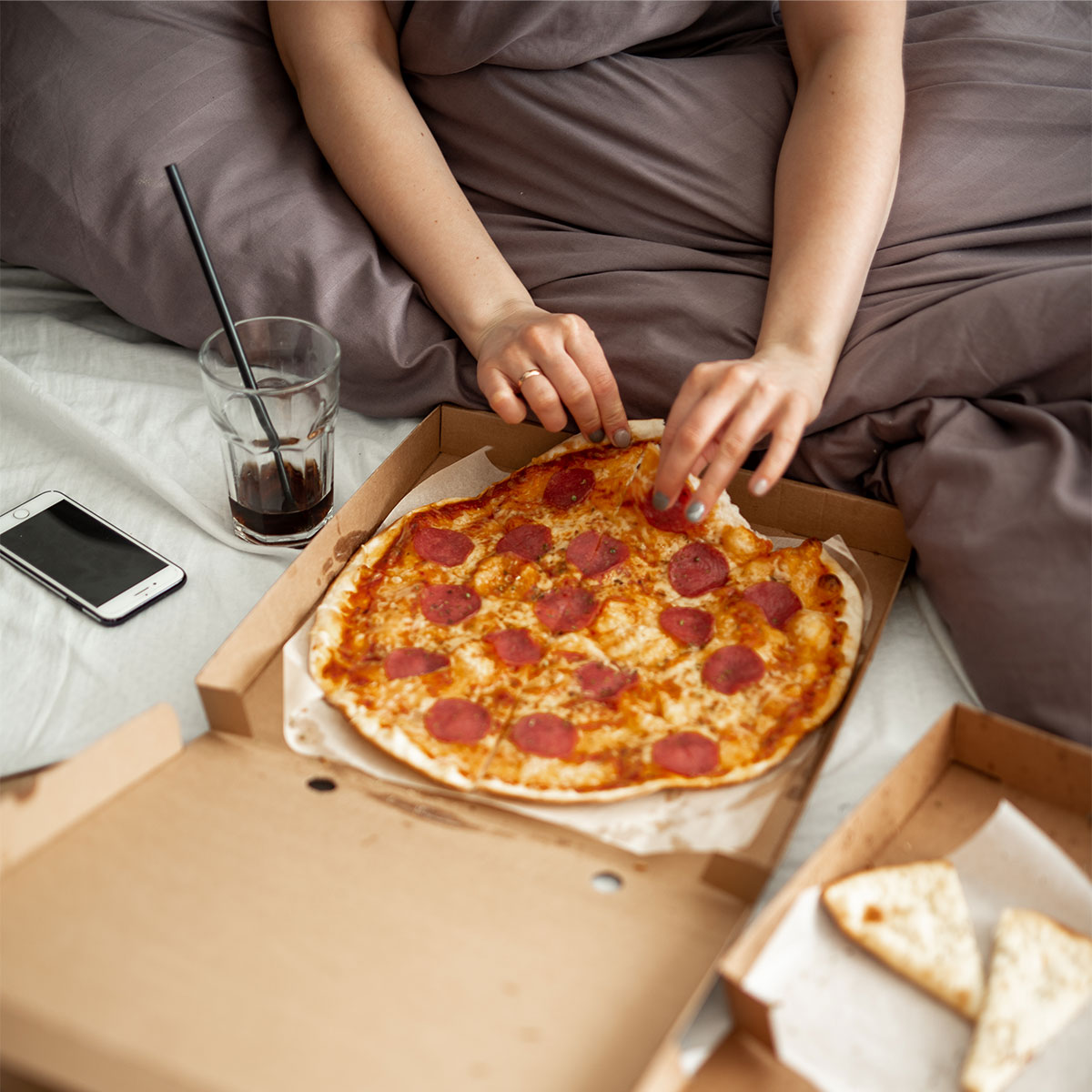
How high-fat foods impact sleep
Let's be honest: Sometimes when late-night cravings hit, all we really want is some greasy, cheesy, salty goodness for dinner. Plus, processed, fattening foods are typically some of the easiest to prepare. Throwing a frozen pizza in the oven, for example, is a quick and easy way to make dinner in a pinch. Unfortunately, though, Richards says that for those of us who are seeking a restful sleep, high-fat foods are among the worst dinner options (and that pizza comes with its fair share of other health risks, too).
"Consuming high-fat foods before bed is not recommended due to their potential impact on sleep quality," Richards warns, listing fried dishes, greasy snacks, and fatty meats as a few examples. According to her, these "tend to take longer to digest compared to lighter options," which "can result in discomfort, indigestion, and even acid reflux, which can disrupt sleep patterns and make it harder to fall asleep or stay asleep throughout the night." Say it ain't so!
"The body's energy is directed towards the digestive process, and the effort required to break down the fats can interfere with the body's natural sleep cycle," she goes on. "Fatty foods can stimulate the production of gastric acid, which can further contribute to heartburn and disturbed sleep." Guess we'll stay away from those burgers, then...
The bottom line
While indulging in a bit of a heavy dinner here and there won't necessarily throw your sleep schedule off forever, it is important to remember that ensuring a good night's sleep will require you to make healthy dietary decisions.
"Opting for lighter, easily digestible foods before bed promotes better sleep by reducing the burden on the digestive system and allowing the body to transition into a restful state more effectively," Richards concludes.
READ MORE: The Nighttime Mistake That May Be Destroying Your Gut Health, According To Experts


